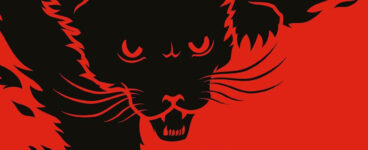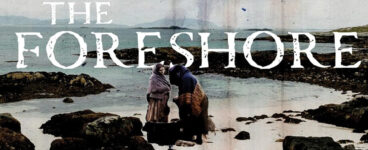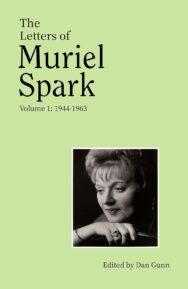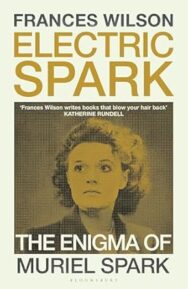‘”Your policy is cramping and stifling my vital development as a writer. I am tired of living in an attic. I do not intend to write attic literature all my life. I have glorious things to be written, unlimited creative potentials, a brimming talent to be expressed.”’
David Robinson takes a look at two books published on one of Scotland’s best loved writers.
The Letters of Muriel Spark
Edited by Dan Gunn
Published by Virago
Electric Spark: The Enigma of Muriel Spark
By Frances Wilson
Published by Bloomsbury Circus
It’s January 1955 and Muriel Spark is writing to her erstwhile lover and literary collaborator Derek Stanford (‘Dearest Boy’) from a Kent cottage let out to artists in difficulties. She has been there since July the previous year, following her mental breakdown and conversion to Catholicism when she had seriously considered becoming a nun.
‘My immediate neighbour next door, Mrs Bell,’ she writes, ‘is reputed to be a spiritualist. She is small and fat and surprised. She stands in the middle of the road outside our cottages with her plump parsnip legs astraddle and as you come out of the door her eyes say “Goodness me!” Then, in a fluting trill, she tells you about herself, though you have heard it before.’ Spark then launches into a comic monologue in Mrs Bell’s voice that could have come straight out of one of Alan Bennett’s Talking Heads, in the course of which she mentions that Mr Bell had written a novel called Murder on the High Seas and, seeing that Mrs Stark [sic] is an authoress, could she possibly take a look at it?
At this point in The Letters of Muriel Spark Vol 1 1944-63, excellently edited by Dan Gunn, the irony is that while Mr Bell is a novelist, Mrs Stark – sorry, Spark – still isn’t. It will be another few months before she sends the first five chapters of her first novel to Alan Maclean, a young editor at Macmillan who has expressed interest in her work. In the course of the year we will track its progress from The Loving of Mrs Hogg, to Characters in a Novel, Types and Shadows and Shadow Play – all oddly unSparklike, anodyne titles – before she finally hits on The Comforters.
Gunn’s book comes just two months after Frances Wilson’s biography Electric Spark and covers some of the same ground. ‘The Muriel Spark who interests me,’ writes Wilson, ‘isn’t the grande dame of her last 40 years but the young divorcee whose arrival in postwar London sent feathers flying and who started all the hares.’ True enough: here’s a young girl from Bruntsfield, born minus silver spoon in mouth to a Scottish-Jewish father and English mother, a double outsider in a city far more stratified and less tolerant than now (think back to the 1935 Protestant Action riots in nearby Morningside); a woman who beats 6,700 other writers to win a short story competition in the Observer with a prize worth the equivalent of £10,000 today with her first stab at fiction when she was so broke she had to borrow the paper to write it on; a barely-known poet who becomes chief administrator of the Poetry Society and takes on its old guard (including such bigwigs as Marie Stopes and Field Marshal Wavell) as editor of its magazine Poetry Review by backing modernists such as TS Eliot. How on earth did all of that happen?
Her letters can’t tell us the whole story. There aren’t any before 1944, so Gunn is unable to shed new light on Spark’s childhood, adolescence, the collapse of her marriage in Africa to the mentally unbalanced Oswald Spark and her wartime work for Sefton Delmer’s anti-Nazi propaganda outfit at Woburn Abbey. But the letters have one great advantage over Wilson’s apophenic biography. As we read them, we piece the story together ourselves rather than second hand.
Take, for example, her correspondence with Alan Maclean. In 1955, when she sends him those first five chapters The Comforters, she is still comparatively hesitant about her fiction. For the previous seven years, she has devoted her time to poetry, book reviewing, and collaborating with her lover Derek Stanford on a variety of non-fiction projects (books about Emily Brontë and Wordsworth and collections of letters by Cardinal Newman and Mary Shelley).
But now she is inventing her own worlds, and she isn’t sure whether she has gone too far with the auditory hallucinations her central character hears in The Comforters and she wants her editor’s advice – something which within a few years will become almost impossible to imagine. To another friend, she writes about having ‘an idea going around in my head for a new novel called Memento Mori. Everyone in it is over 70. I have written the opening pages but don’t at all know where it is going to lead…. My main problem is, whether I should make clear to the reader what I am doing or simply let the irrationality be an accepted thing…’
Yet all the time her self-assurance is growing. Edith Sitwell tells her how to deal with people in the book business by looking witheringly at them ‘as if through a pair of lorgnettes’. When a friend, Christine Brooke-Rose, has the temerity to suggest she has made a grammatical mistake, Spark tells her ‘If I write it, it’s grammatical’. ‘I made up my mind at the age of nine not to care less about criticisms of style’, she tells another of her editors. ‘Naturally I’m not going to climb down at my age.’
Although she has had the support of fellow Catholic writers Evelyn Waugh and Graham Greene (the latter even sending cheques and wine on condition that she didn’t pray for him), Spark was repeatedly let down by the men closest to her. Derek Stanford – the original of the specious ‘pisseur de copie’ in A Far Cry from Kensington – may not even have been the worst of them. Even though he did betray Spark by selling her love letters and telling her parents about her breakdown, Stanford did at least respect her decision to stop having sex with him after she was baptised into the Church of England in 1952. In 1958, she had to fight off drunken BBC producer Rayner Heppenstall. ‘I had to literally struggle for my honour,’ she wrote to Stanford. ‘A real hard struggle and me terrified all the time Mrs L [her Camberwell landlady] would hear. I was bloody angry – particularly as he said some aggressive things and refused to leave.’ Spark’s 2009 biographer Martin Stannard calls this an attempted seduction. Wilson is more forthright: ‘I say he tried to rape her.’
I started by mentioning how Alan Maclean gave Spark her first break as a novelist, but that was back in 1955 and since then five years have passed. Five years, five books: The Comforters (1957), Robinson (1958), Memento Mori (1958), The Ballad of Peckham Rye (1960), and The Bachelors (1960). Any – tiny – lack of confidence has long since disappeared, along with any sense of obligation: this is a woman who knows her own worth, who is dictating what her publisher’s print run should be and is sure of her goals. As she writes to Maclean:
‘Your policy is cramping and stifling my vital development as a writer. I am tired of living in an attic. I do not intend to write attic literature all my life. I have glorious things to be written, unlimited creative potentials, a brimming talent to be expressed.’
Of course, she was right. The next novel was The Prime of Miss Jean Brodie, the first novel by a British writer to be serialised its entirety (though marginally trimmed) in the New Yorker and ‘a definite turning point in my career’.
Dan Gunn’s selection of letters is wide-ranging: there are letters here of friendship, of love, of literary insight and family worries and most of them are written with the kind of wit and clarity you would expect. But I’ll end with one she wrote to her Alan Maclean’s boss at Macmillan, Rache (short for Horatio, apparently) Lovat Dickson. I’ve never read anything like it in my life.
It’s 15 November, 1961. The Prime of Miss Jean Brodie was serialised in the New Yorker and published in London in October. Spark should, by rights, have been on a high: Lovat Dickson had already assured her that she was Macmillan’s highest paid author but cautioned her to keep quiet about it. Instead, she writes a letter which takes up a full ten pages of Gunn’s book. She is demanding the withdrawal of an option clause in her contract – a legal detail of the kind that wouldn’t normally hold my attention for a microsecond.
Yet this letter, in its controlled anger and eloquence (not to mention length) is completely magnificent. And when you have read, in the preceding 500-plus pages, about Spark’s Grub Street years, of the way she was betrayed both professionally and personally; when you read her telling her friend, the novelist Shirley Hazzard, that her gay American literary agent Ivan von Auw is ‘the only man I’ve ever had to do with who hasn’t tried to push me around’; when you have followed two decades of her life in her own words, you can’t help cheering her on. As she tells Lovat Dickson:
‘I know of no other writer on your list but myself who has had the opportunity to build an intelligent career in the world, or to get married, and who has consciously and deliberately set these safeties aside and endured poverty, and taken the risk of failure, in order to write well. It is not a spare-time hobby I am engaged in, but something for which I have had to sacrifice pleasures, and continually have to give up pleasures to do, and no matter how successful I become I shall always have to make these sacrifices. It is not the type of work that comes from a compromised life.’
The Letters of Muriel Spark Volume 1 1944-1963 edited by Dan Gunn is published by Virago, priced £27.95. Electric Spark: The Enigma of Muriel Spark by Frances Wilson is published by Bloomsbury Circus, priced £25.00.
ALSO IN THIS ISSUE

 Cat Wumman by Gerda Stevenson
Cat Wumman by Gerda Stevenson
‘Mind you, I miss the tree ootside ma windae. I miss its wrunkelt bark – like me, aa the lines o lan …

 The Foreshore by Samantha York
The Foreshore by Samantha York
‘Silence hung ominously at the end of the Reverend’s words. Flora felt the air thicken as the remain …














